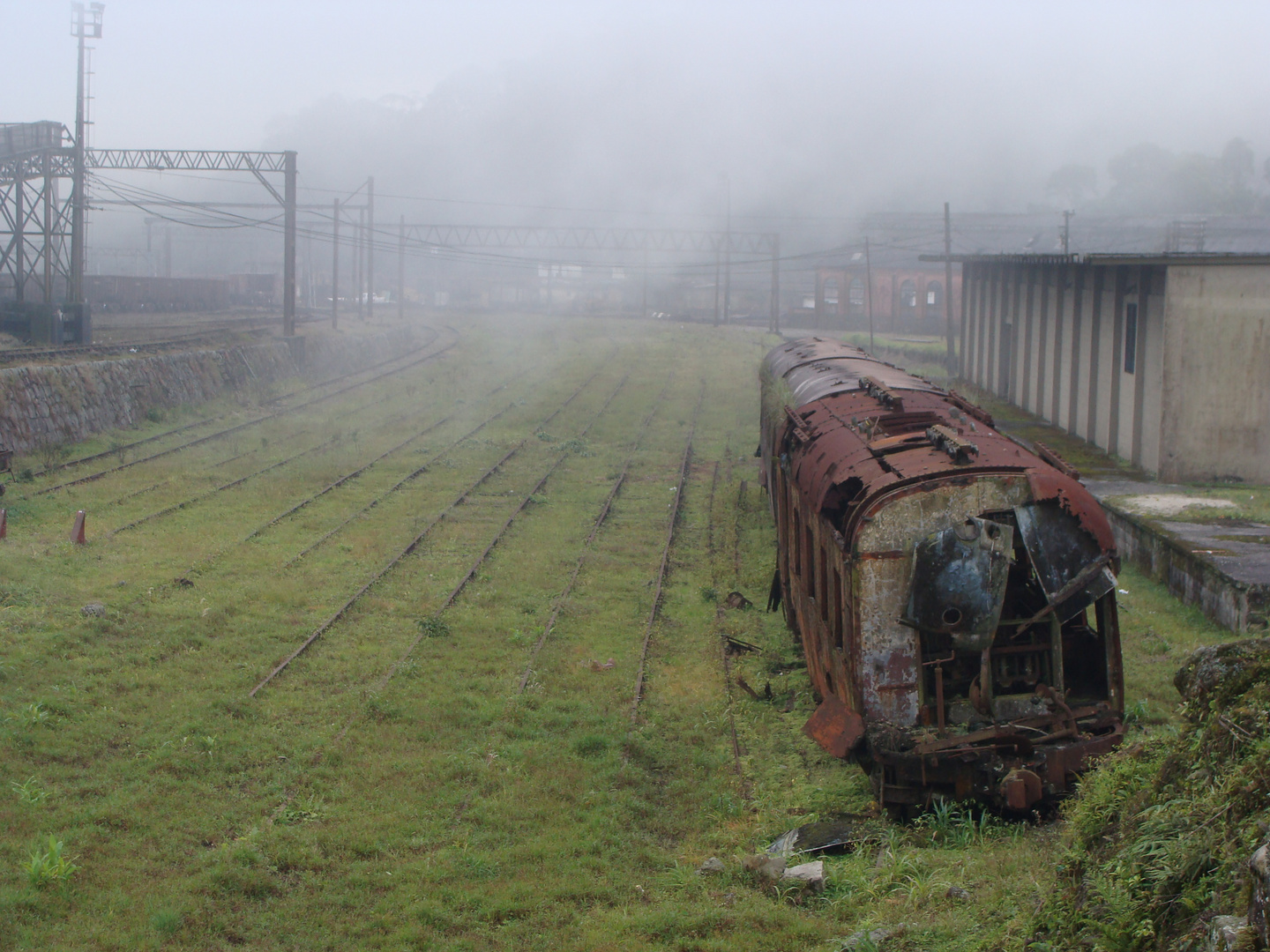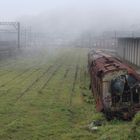Trêm velho - the train Star
The "locobreque" had the job of stopping the composition down the mountain, which simultaneously pulled one that rose. The cable between the two machines went through a big wheel steering wheel, called a "machine-fixes" that stood in each of five levels. The original English name, loco-brake, the machine worked by burning coal or wood in a furnace, fueled by the stoker, who worked alongside the driver. The machines' locobreque "were built in 1901 by Robert Stephenson & Co. Ltd. The funicular system provided greater economy of energy expended by the" locobreque "and enabled the performance of the train uphill and downhill. There was an inclination of 8 degrees between each of five levels.
Locobreque - detail the system of steel cable lock
When I climbed the Mountain of the Sea, "locobreque" pushed the wagons, which stood in front of the machine. When down, he held the wagons, which were located behind the machine. As the train had no reverse gear and a system popularly called "Viradouro," by which officials reversed the direction of the locomotive pushing the machine around itself.
Before the "locobreque" there was a primitive wooden machine, also pulled by cables, which made transportation between the five levels. It was "serrabreque. During the operation of "serrabreque," the Baron of Maua was still one of the financiers of the company.
Up to half of the twentieth century, rail was synonymous with luxury. And one of the milestones was the train's Comet, which made the line Santos - São Paulo. The train service had to board chairs and bed, as the bus. Besides him, there was also trains Star, Planet and Litorina (Semi-luxury)










Commentaire 0
Supprimer le commentaire
Effacer commentaire et réponses